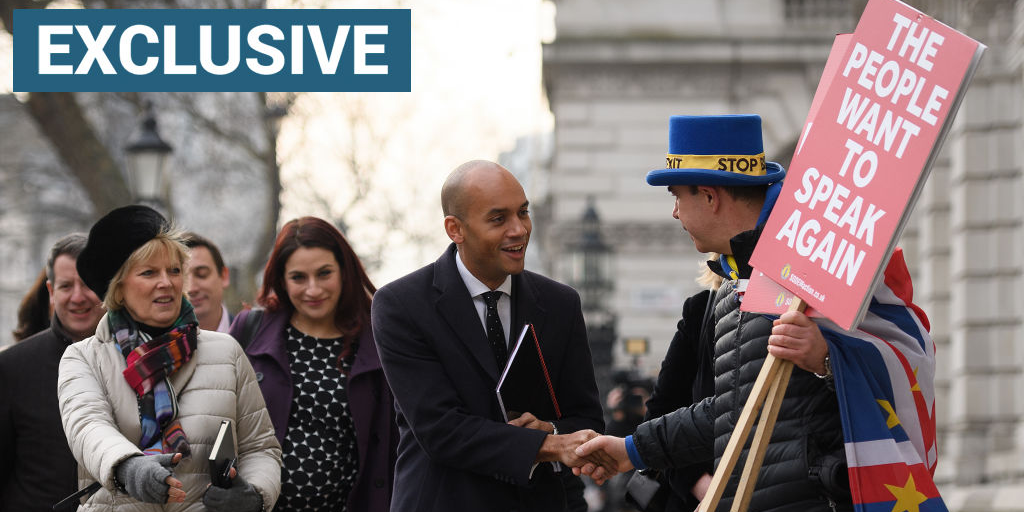- The campaign for a second referendum is considering backing plans to allow a “Citizens’ Assembly” on Brexit.
- Under the plan, a randomly selected group of voters would be charged with finding a way to break the Brexit deadlock in the UK parliament.
- Second referendum campaigners believe the plan may be the only means left of securing support for another vote.
- MPs backing a second referendum pulled plans for a House of Commons vote on the issue next week citing lack of support.
LONDON – The People’s Vote campaign is considering throwing its support behind a so-called Citizens’ Assembly on Brexit in a late roll of the dice to win support for a second referendum on leaving the European Union.
With the clock ticking down to Brexit day, tensions within the People’s Vote campaign have increased as the chances of securing a majority in Parliament for a second vote have dwindled.
This week MPs in favour of a new referendum decided not to hold a House of Commons vote on a referendum next week, citing a lack of support from opposition Labour party leader Jeremy Corbyn.
The campaign is now considering alternative means of securing a referendum, including backing a Citizens’ Assembly on Brexit.
Under the plans being pushed by MPs including Labour MP Lisa Nandy, a randomly selected but representative group of 250 members of the public would be brought together to seek a solution to the Brexit crisis.
A Brexit amendment, calling for an assembly, could be voted on by MPs next Tuesday and has already secured broad support from across the House of Commons.
Liberal Democrat MP and supporter of a People's Vote, Layla Moran, told Business Insider that a Citizens' Assembly on Brexit could help push through a referendum.
"We can't put the referendum genie back in the bottle," she said.
"But given how many we'd had it's staggering that Parliament never learned the lessons on how to do them better every time. Citizens Assemblies could well fill that void. And in Ireland they have proved a valuable way of involving the public and finessing the process and questions asked.
"I've always said more democracy can never be less democracy. But we can certainly keep making democracy better."
The plan has been backed by MPs from across the Commons, some of whom are not supportive of a second referendum.
It has also received tentative support from government figures, with Downing Street yet to rule out agreeing to hold one, contrary to its staunch opposition to all other alternative Brexit plans.
Theresa May expressed interest in the concept in recent cross-party meetings with MPs, sources familiar with those meetings have told BI.
READ MORE: The People's Vote campaign approaches judgement day in battle to secure a new Brexit referendum
Senior Labour figures said that they doubted whether Nandy would be happy about the People's Vote campaign using her idea as a means to pursue a referendum.
However, an ally of the Labour MP welcomed the news, telling Business Insider: "The Citizens' Assembly we're proposing would be free to consider all options including Norway, referendum and no deal and if the People's Vote are willing to keep an open mind about all those options it's a significant shift and very welcome."
Figures within People's Vote have played down suggestions that they will immediately throw their weight behind the campaign, with one figure labelling it a "ballpark idea" that had yet to be approved.
Another supporter of the People's Vote campaign described the idea of a Citizens' Assembly on Brexit as "dumb" and akin to "a temporary one-issue House of Lords without the meritocratic element."
However, with time running out to secure support for a second Brexit vote, some senior figures in the campaign are desperate for the suggestion to gain traction.
Business Insider reported this week on the growing divides in the People's Vote campaign, with sources describing disagreements over the decision to pull their plans to hold a Commons vote on a second referendum and growing discontent about the role of People's Vote communication chief Tom Baldwin and his focus on running a Labour party-focused and poll-driven campaign.
